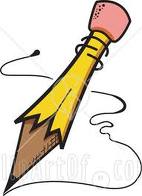
Here are some read-aloud tips:
![]() Make reading together part of your daily routine.
Make reading together part of your daily routine.
![]() Involve your child.
Involve your child.
Encourage them to read the high frequency [popcorn] words that occur in all books.
![]() Re-read favorite stories.
Re-read favorite stories.
It is okay to read the same story over and over! Your child learns about intonation, fluency, and how books work through your modeling!
![]() Take your time.
Take your time.
Don't rush through a story for the sake of time. If it's time for bed and there are still five pages left, leave them for tomorrow.
![]() Have your child retell small parts of the story.
Have your child retell small parts of the story.
Your child doesn't need to give you an in-depth retelling each night. Simply being able to tell you a few character names and what's happening is a great start!
![]() Use character voices.
Use character voices.
No one likes to hear someone read in a monotone voice! Get into the story - give each character a different voice!
![]() It's okay to make mistakes.
It's okay to make mistakes.
It's hard to read a whole book out loud perfectly. It is okay if you make mistakes while you read. It shows your child that even grown-ups can't read perfectly. It also shows them what you do when you make a mistake, how you reread and self-correct.
![]() Relax and enjoy!
Relax and enjoy!
This is a great time to bond with your child. Have fun!
Good readers use the following strategies as they read...
Make predictions- before and after reading
Picture walk- to see what they story will be about
Visualize- paint a picture or movie in their mind
Re-read confusing parts- to gain more understanding
Read fluently- read at a good pace
Use schema- what they already know (their background knowledge)
Make connections- text to self, text to text, and text to world
Think aloud- to summarize what was read
Use context clues- to read unfamiliar words
Retell- what they have read to someone else
_________________________________
*When discussing your child's writing, say, "Tell me about your writing."
*Have them tell you about their writing and picture, don't try to guess what they drew/wrote.
*Avoid phrases such as, "What's that?", "Who's that?", "I don't know what your picture is."
Writers Workshop
*Please note this workshop is somewhat different from the
Comumbia Teachers College Workshop we use in school.

